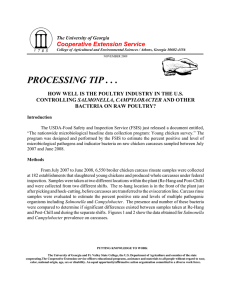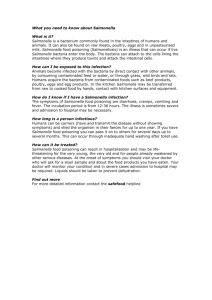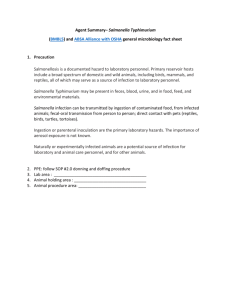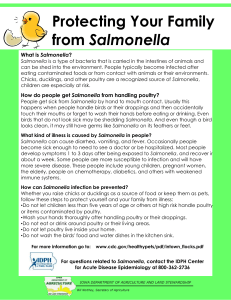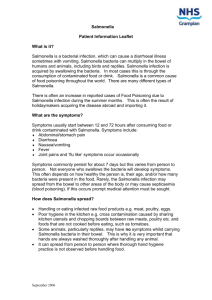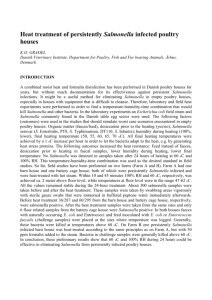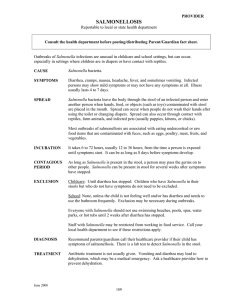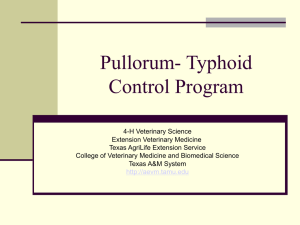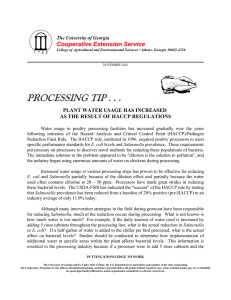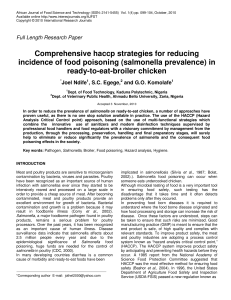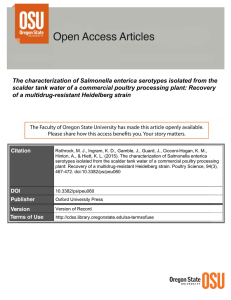Extension‐Wise Published Weekly in the Madison County Journal ‐ Adam Speir, Madison County Agriculture Agent
advertisement
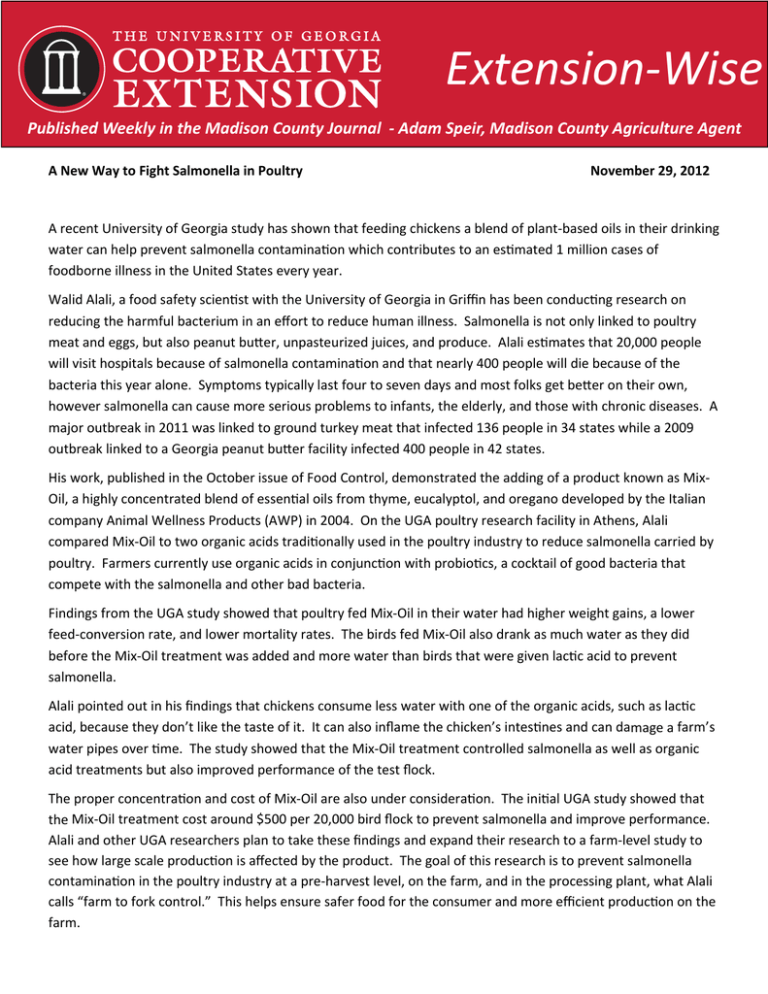
Extension‐Wise Published Weekly in the Madison County Journal ‐ Adam Speir, Madison County Agriculture Agent A New Way to Fight Salmonella in Poultry November 29, 2012 A recent University of Georgia study has shown that feeding chickens a blend of plant‐based oils in their drinking water can help prevent salmonella contamina on which contributes to an es mated 1 million cases of foodborne illness in the United States every year. Walid Alali, a food safety scien st with the University of Georgia in Griffin has been conduc ng research on reducing the harmful bacterium in an effort to reduce human illness. Salmonella is not only linked to poultry meat and eggs, but also peanut bu er, unpasteurized juices, and produce. Alali es mates that 20,000 people will visit hospitals because of salmonella contamina on and that nearly 400 people will die because of the bacteria this year alone. Symptoms typically last four to seven days and most folks get be er on their own, however salmonella can cause more serious problems to infants, the elderly, and those with chronic diseases. A major outbreak in 2011 was linked to ground turkey meat that infected 136 people in 34 states while a 2009 outbreak linked to a Georgia peanut bu er facility infected 400 people in 42 states. His work, published in the October issue of Food Control, demonstrated the adding of a product known as Mix‐ Oil, a highly concentrated blend of essen al oils from thyme, eucalyptol, and oregano developed by the Italian company Animal Wellness Products (AWP) in 2004. On the UGA poultry research facility in Athens, Alali compared Mix‐Oil to two organic acids tradi onally used in the poultry industry to reduce salmonella carried by poultry. Farmers currently use organic acids in conjunc on with probio cs, a cocktail of good bacteria that compete with the salmonella and other bad bacteria. Findings from the UGA study showed that poultry fed Mix‐Oil in their water had higher weight gains, a lower feed‐conversion rate, and lower mortality rates. The birds fed Mix‐Oil also drank as much water as they did before the Mix‐Oil treatment was added and more water than birds that were given lac c acid to prevent salmonella. Alali pointed out in his findings that chickens consume less water with one of the organic acids, such as lac c acid, because they don’t like the taste of it. It can also inflame the chicken’s intes nes and can damage a farm’s water pipes over me. The study showed that the Mix‐Oil treatment controlled salmonella as well as organic acid treatments but also improved performance of the test flock. The proper concentra on and cost of Mix‐Oil are also under considera on. The ini al UGA study showed that the Mix‐Oil treatment cost around $500 per 20,000 bird flock to prevent salmonella and improve performance. Alali and other UGA researchers plan to take these findings and expand their research to a farm‐level study to see how large scale produc on is affected by the product. The goal of this research is to prevent salmonella contamina on in the poultry industry at a pre‐harvest level, on the farm, and in the processing plant, what Alali calls “farm to fork control.” This helps ensure safer food for the consumer and more efficient produc on on the farm.
